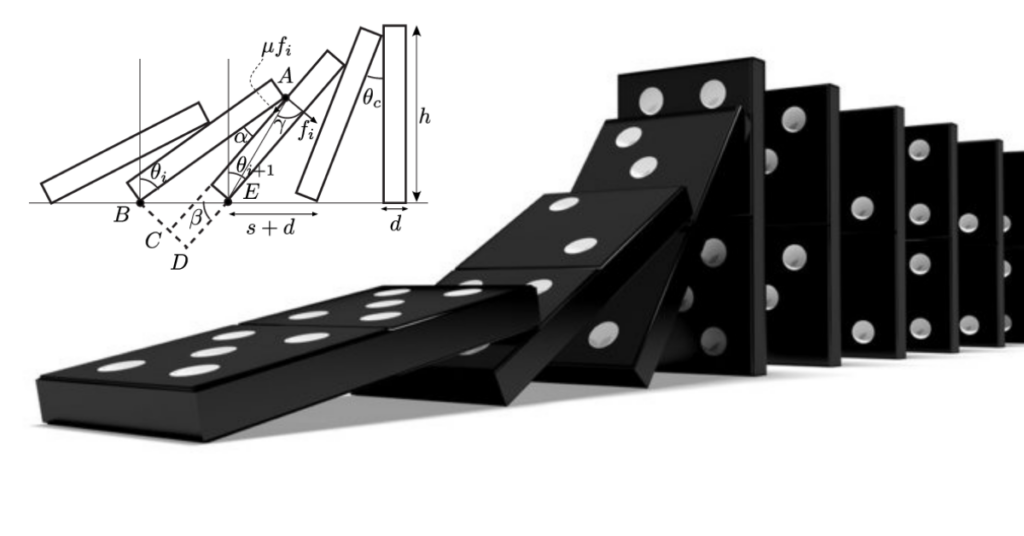In college I was once asked by a fellow classmate why a science-minded person studying engineering like me would ever believe in God. My friend’s mindset was that a person could either believe in science or believe in religion, but one could not believe in both.
This seems to be a common struggle in our culture, especially when it comes to the Intelligent Design position. I’ve heard many atheists comment that Intelligent Design isn’t a scientific position at all. They typically dismiss it outright as an unqualified conclusion to a scientific question. Can a position that inserts the supernatural be a scientific position about the natural world?
What is science?
According to Google dictionary, science is defined as “the intellectual and practical activity encompassing the systematic study of the structure and behavior of the physical and natural world through observation and experiment.”
In other words, science seeks to study the physical and natural world by observing it and conducting experiments that relate to it. Science is simply the gathering of facts about the world around us. Science itself does not draw any conclusions or theories about those facts. It is the scientist who draws the conclusion about what the science reveals. Scientists generate the theories; science gives the facts. That is an important distinction to make. As Stephen Jay Gould said, “Facts and theories are different things, not rungs in a hierarchy of increasing certainty. Facts are the world’s data. Theories are structures of ideas that explain and interpret facts.”
True scientific pursuit then should be drawing appropriate conclusions based on where the observation and experimentation about the natural world lead. While the observations of science are of the natural world, the conclusions from science should not be a priori limited to only the natural world. Otherwise, scientists are inserting their conclusion into their premise.
Those scientists would decide there is nothing outside of the natural world and therefore rule out anything that alludes to something outside the natural world. This would not be true to scientific pursuits of seeking the best and most valid explanation to what is observed. The conclusions should follow where the data leads because there may be times when the valid explanation comes from outside of the natural system.
For example, if you were studying a train of dominoes that fell, you could do all kinds of observations and experimentation to explain the physics behind the first domino knocking down the second domino. You could quantify the force exerted on the top of the domino to make it tilt until the force of gravity pulls the domino down to the table. You could observe the distance required between each domino so that the previous domino will knock over the next domino. You could repeat the scenario and analyze the forces that must be overcome in order to make the first domino fall.
The observation and experimentation to gather the scientific data about friction, domino characteristics, and earth’s gravity would tell you a lot about the falling dominoes. But it won’t provide the answer to what knocked the first domino over. You would have to look outside of the domino system to understand what started it all. Was it a natural phenomena, like wind blowing it over or an earthquake shaking the table? Or was it a person flicking the first domino over? Either way, it must have come from outside the domino system.
The scientific data collected would reveal a lot about the domino system, but it would also ultimately lead us to conclude that the domino system itself cannot account for the initial domino falling over. The first cause of the falling domino train must be something outside of the domino train itself.
This is not because of the lack of scientific understanding about gravity, force, and dominoes, but rather because of scientific understanding of how physics work, we know an outside force is required to move the first domino. There is no “gap” in our knowledge about physics, but rather a fullness in our understanding of physics that necessitates there being a force outside of the system to act upon the system in order to have the dominoes fall over.
Likewise, the theory of Intelligent Design is not an attempt to fill some gap in our knowledge of science, rather it is because of our understanding of science that we are led to the theory of Intelligent Design.
What is Intelligent Design?
Intelligent Design is the theory that life, or the universe, cannot have arisen by chance but rather was designed and created by some intelligent entity. This isn’t because we don’t know enough about the universe. On the contrary, we are drawing an appropriate conclusion as to its cause based on our understanding of the universe.
When there is information found somewhere, the appropriate conclusion to draw based on how the universe works is that there was intelligence behind it. When that information is in a code, it further confirms there must be an intelligent mind as the source.
These would be valid conclusions in any other area. If you found a document written in code containing instructions on how to assemble a car engine, you would logically conclude that the instruction book itself is not the source of this coded information. Scientific observation and experimentation of the natural world would reveal that intelligence is required to produce coded information.
We are not inserting an intelligent source out of some lack of understanding or lack of some natural explanation for this instruction manual. We insert an intelligent source because we know that to be the proper explanation for coded information. It is the logical conclusion from scientific observation. This is the basis of the theory of Intelligent Design.
Unlike Darwinian macroevolution, Intelligent Design asserts that coded information found in every living cell must be the result of an intelligent source. Darwinian macroevolution, however, steps outside of what the experimentation and observation would indicate. It concludes that coded information can arise from non-intelligence. But there is no observation or experimentation that would prove that to be so. In other words, it is because of what science reveals to us that we conclude something intelligent must be the source of coded information.
However, there is another definition of science that people reference to claim that Intelligent Design is not a scientific theory. In the Merriam-Webster dictionary, science is defined as “a systematic enterprise that builds and organizes knowledge in the form of testable explanations and predictions about the universe.” The Darwinian macroevolutionists claim Intelligent Design cannot make “predictions about the universe,” nor is it a “testable explanation.”
Can Intelligent Design make predictions?
This universe functions in a predictable way (which is especially amazing if the universe were formed from a random chaotic process). The observable laws of physics and chemistry allow scientists to make predictions about how the universe will function and how materials will interact. For example, the law of gravity informs us that when an object is thrown into the air, it will fall back down to the ground. We can do analyses on different trajectories and initial forces to predict how far away an object would land.
There is this assumption, however, that the theory of Intelligent Design is invalid because it cannot make predictions. The accusation is that an intelligent designer could then act within nature in any way possible without any predictive ability. This is absolutely correct, and in many ways confirms the claims of Jesus as being the Intelligent Designer when He is able to act within nature in unpredictable ways. Making the lame walk, the blind see, and the dead raised to life would certainly be evidence of the violation of the laws of nature by One who exists outside of this nature.
On the other hand, there is more predictability in the theory of Intelligent Design than in the theory of Darwinian macroevolution. Having an intelligent creative force behind this universe predicts that the universe will be stable, that there will be laws governing how the universe functions and how materials interact. A random, chaotic process could not produce a universe with any stability or predictability.
Furthermore, Darwinian macroevolution relies on unpredictable genetic mutations. For macroevolution to be a completely natural process, it cannot plan for or manipulate changes in order to generate a better adapted organism. The whole premise is that those changes are random. Therefore, there is no predictability in that mechanism.
Ultimately there is better predictive power in the theory of Intelligent Design than in the theory of Darwinian macroevolution. But is Intelligent Design a theory that is testable? The definition of a scientific theory is “an explanation that can be repeatedly tested and verified in accordance with the scientific method.”
Is Intelligent Design testable?
In reality, no theory about the origins of the universe would meet this criteria. We cannot go back in time and repeatedly test what events and actions would result in a universe. Therefore, in the strict application of this definition, the theory of Darwinian macroevolution fails along with any other theory of origins.
However, there are aspects to each theory that are testable. Scientists have tested the results of genetic modifications of certain species. In particular, they have fully tested the possible genetic mutations for Drosophila melonagaster, also known as the fruit fly. What they discovered from those tests is 70% of the genetic mutations produced dead or disabled fruit flies. The remaining 30% produced fruit flies with no discernible advantage over a non-mutated fruit fly.
These repeated experiments confirm that genetic mutations do not result in a positive progression for generating a new and better adapted species. It demonstrates the lack of creative power of Darwinian macroevolution. It also establishes the mutated fruit flies remain fruit flies, without the possibility of becoming a new kind of organism.
Intelligent Design can be confirmed through a similar type of repeated testing. Everything we scientifically observe about nature indicates the hypothesis that information can come from something not intelligent fails. Information, which is far beyond simple patterns in crystals, actually informs something. It gives direction. This is precisely what we find within the DNA of cells.
So is Intelligent Design a scientific position if it relies on something outside of nature? Absolutely. Science done honestly should follow the data to the most logical conclusion and to the theory with the most explanatory power. Intelligent Design is a valid position because of how we know the universe works. The non-intelligent cannot give rise to coded information. The stability and reliability of the laws of nature could not arise from random chaos. And the logic behind the theory of Intelligent Design can be tested and demonstrated by repeatable experimentation.





5 thoughts on “Is Intelligent Design a Scientific Position?”
Great article that shows why ID is not a “God-of-the-gaps” argument.
It should be noted that the Scientific Revolution itself occurred precisely because the giants of scientific discovery (Newton, Leibniz, Pascal, Faraday, and many many more) all believed in some sort of Intelligent Design that would allow them to discover the general scientific laws of the universe. They believed that these scientific laws were created by the same God Who created the universe, and that because God reveals Himself to us in a myriad number of ways, these laws were capable of being discovered and organized mathematically, scientifically, biologically, etc.
And many of these scientific giants wrote as much about theology as they did science. Newton considered his best work to be his theological writings, although we most remember him for his discovery of calculus, theory of optics, and universal gravitational theory. Leibniz, whose theology was far superior and who independently discovered calculus, also produced a proof of God known as the Leibniz Contingency Argument (which was very helpful in my own conversion), Faraday was a fundamentalist preacher, and a quite good one at that, and we are all familiar with Pascal’s Wager and his Pensees writings. In essence, God made not only science and scientists, but the possibility of scientific thought and discovery. The chief purpose of scientific discovery was, to these great scientists, to glorify God, as well it should be.
I cannot add a single thing to that comment. 🙂 Perfectly said, Bob!!
Catherine, I really enjoyed reading this article. Thanks. Someone has said that God gave us his book of nature as well as his book of Scripture and the two cannot contradict. Only in interpretation and understanding can there be disagreement.
That’s very true!
Thank you.
Your writing is clear consistent and beneficial to me.
Comments are closed.